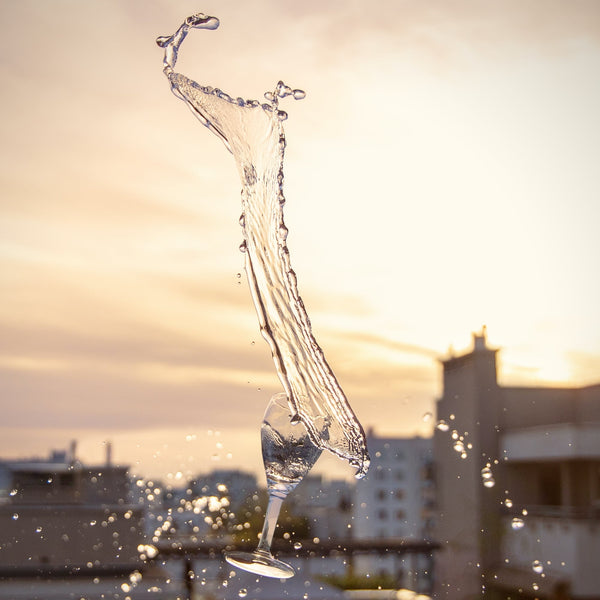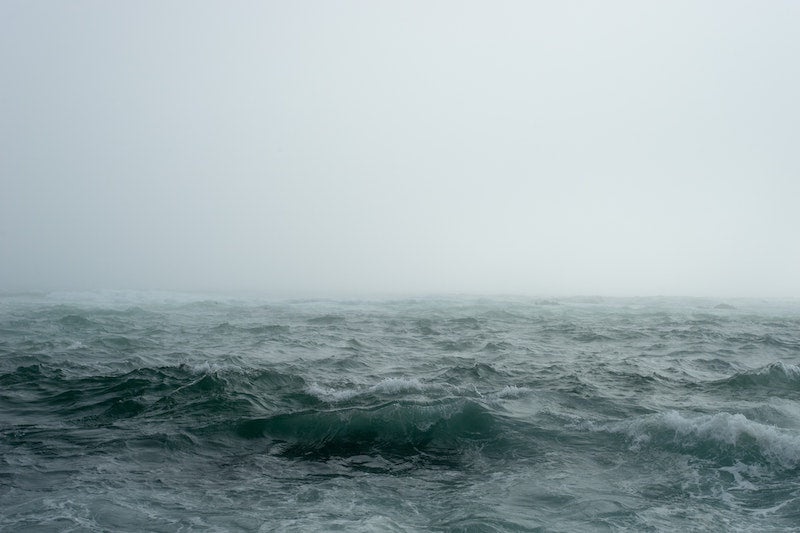You hear people talking all the time about the importance of drinking enough water, and you might be constantly trying to increase your intake. At the same time, though, have you ever wondered whether or not it’s possible to drink too much? Do you worry that carrying a water bottle with you everywhere could do more harm than good?
Can you die from drinking too much water? If so, how much water can kill you? Read on to learn the answers to these and other common questions about over-hydrating.
Water Intoxication: The Basics
Put simply, water intoxication is a medical condition that occurs when you drink too much water in a short period of time. It’s also known as hyperhydration, water toxemia, and/or water poisoning.
What Happens When You Drink Too Much Water?
Water intoxication has the potential to be deadly because it causes a severe imbalance in electrolytes, specifically sodium [1].
Electrolytes are minerals that carry an electrical charge [2]. They also support proper hydration, as well as a variety of bodily processes, including muscle contraction, liver function, and kidney function.
When you drink too much water (we’ll get to what “too much” looks like in a minute), your sodium levels drop lower than is healthy. When sodium is too low, water moves into the body’s cells (including, potentially, the brain cells) and causes them to swell up.
What Are the Symptoms of Water Intoxication?
If you were to drink too much water without giving your body enough time to utilize it and flush it out, you might experience the following symptoms, all of which are associated with hyperhydration [3]:
- Headaches
- Muscle cramps
- Nausea and/or vomiting
- Drowsiness
In severe cases, water intoxication can cause more serious symptoms, including confusion, seizures, and a loss of consciousness. If it’s left untreated for too long, it can also become fatal.
How Much Water Will Lead to a Water Overdose?
Currently, there’s not a lot of research on water intoxication. Because of this, it’s also not 100 percent clear how much water it would take to lead to an overdose.

The results of a 2013 study showed, though, that water intoxication symptoms typically show up when a person consumes more than about 3-4 liters of water (that’s 12-16 cups) over a period of a few hours (or less) [4].
Another case report showed that symptoms of water intoxication occurred when soldiers consumed 1.9 liters (or 8 cups) of water per hour [5].
As you can see, it takes a lot of water to cause hyperhydration. It is possible to get sick or possibly die from too much water, but it’s not exactly easy to reach that point.
Chugging a couple of glasses when you’re feeling extra thirsty isn’t going to cause any serious health problems (if anything, it’ll probably just cause a need to run to the bathroom sooner).
Sodium Matters, Too
Perhaps more important than the specific amount of water you consume is your sodium levels. Remember, it’s the drop in sodium caused by a dramatically increased water intake that leads to water intoxication.
Some researchers have found that symptoms of hyperhydration start to show up when serum sodium levels fall below 120 mmol/liter [1]. “Normal” is considered to be between 136 and 145 mmol/liter [6]. If sodium levels drop to 90-105 mmol/liter, severe symptoms will likely start to present themselves.
Rule of Thumb
Generally speaking, your kidneys can excrete between 800 and 1,000 milliliters (0.8-1 liter) of water per hour [7]. With that in mind, it makes sense that less-than or equal to 800-1,000 milliliters of water per hour would be a safe amount for most people to take in.
Of course, this is merely a guideline. Everyone’s specific water needs are unique and determined based on a variety of factors, such as their age, gender, and general health status.
Water Intoxication Risk Factors
Healthy adults typically don’t need to be too concerned about over-hydrating. Some people may be more likely to experience this issue than others, though.
For example, children and elderly individuals tend to have less efficient kidneys, which means they cannot drink as much water per hour as a healthy adult [8,9]. Folks of all ages who deal with kidney problems will also need to be more careful than others when it comes to their water consumption.

If you have concerns about your water intake or worry that you’re drinking too much, always talk to your doctor. They can help you assess your consumption, evaluate your lifestyle, and make sure you don’t have any underlying conditions that could increase your risk of hyperhydration.
How Is Water Intoxication Treated?
Treatments for water intoxication vary depending on the severity of the condition.
If you suspect you’ve taken in too much water, it’s important to consult a medical professional as soon as possible. They can provide an assessment and treatment right away if it’s needed.
The following are some options they might use to help you avoid the effects of over-hydrating [11]:
- Temporarily limiting consumption of fluids
- Prescribing diuretics to increase urine production and prevent fluid buildup
- Replacing sodium
If you have a specific medical condition that led to you becoming overly hydrated (such as a kidney problem, reaction to medications, or serious electrolyte imbalance), they will also address that condition directly. This will help you to feel better in the moment and avoid finding yourself in the same position again in the future.
How to Avoid Over-Hydrating
The good news is that it’s not too hard to keep yourself from taking in a lethal dose of water.
The easiest way to avoid hyperhydration is to drink less than 0.8-1 liter of water per hour. Make sure you’re drinking enough water throughout the day, but try to spread it out, rather than drinking it all in one sitting.
For the record, the National Academies of Science, Engineering, and Medicine recommends that women consume 2.7 liters (91 ounces) of fluids per day and men consume 3.7 liters (125 ounces) [12].
Keep in mind, too, that you don’t necessarily have to get all of your hydration from plain water. Water from food, such as fruits and vegetables, count toward hydration, as do other drinks like tea, coffee, or juice.
What If You’re Always Thirsty?
If you’re constantly drinking water (to the point where you’re concerned about over-hydrating) because you’re genuinely thirsty, there might be something else going on. The following are some potential reasons why you feel thirsty more often than not [13]:
- Regularly eating large amounts of salty or spicy foods
- Prescription medications like lithium, diuretics, or antipsychotics
- Chronic health conditions like diabetes
- Heart, liver, and/or kidney failure
- Sepsis (an inflammatory reaction from an infection)
If you suspect that any of these issues are causing you to drink too much water, talk to your doctor right away.
Proper Post-Workout Rehydration
Make sure you’re rehydrating properly after a strenuous workout or game, too. Many people run into trouble and increase their risk of hyperhydration when they’ve just pushed themselves to the limit, have been sweating a ton, and chug a high volume of water all at once to try and fix the problem.

Here are some tips that can help you replenish fluids and electrolytes without going overboard:
Replace Fluids
The first step to rehydrating is replacing fluids. According to the American Academy of Sports Medicine, you should aim to drink between 16 and 24 ounces (0.4-0.7 liters) of water for every pound lost while exercising (weigh yourself before and after your workout to calculate the appropriate amount) [14].
Add Electrolytes
If you were sweating a lot during your workout, you might benefit from adding an electrolyte drink mix like Hydrant to your water.
Hydrant and other mixes are easy-to-use solutions that provide you with extra minerals, including sodium, which you now know is key to avoiding hyperhydration. As a bonus, they also make your water more flavorful and fun to drink (especially if plain water is not your favorite).
Hydrate Before and During Your Workout
You’ll be less likely to overdo it on water (and risk hyperhydration) after your workout if you drink enough fluids before and during each training session.
In the same source mentioned above, the American Academy of Sports Medicine recommends drinking 14-22 ounces (0.4-0.6 liters) of water two hours before exercising and 6-12 ounces (0.17-0.3 liters) of water every 15-20 minutes during your workout [14].
Final Thoughts
Yes, a person can die from drinking too much water. However, the chances of this happening are slim. At the end of the day, most adults could probably benefit from drinking more water and consuming additional electrolytes.
Follow the suggestions about over-hydrating that are laid out above and you’ll have no trouble meeting your water needs without going overboard.
-
By John Sherwin















